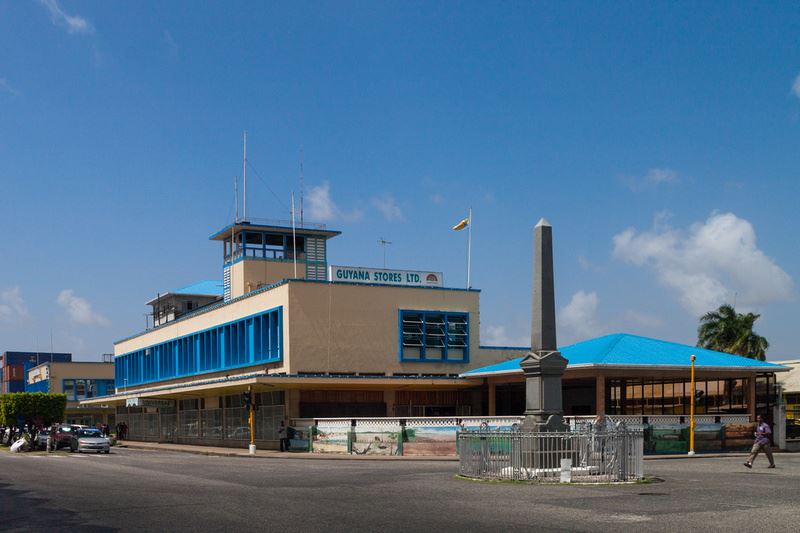After having been given an extension of time to pay, Guyana Stores Limited (GSL) is likely to find itself on the hook for more than the $3.8 billion liability to the Guyana Revenue Authority (GRA) that a Caribbean Court of Justice (CCJ) ruling cleared the way for.
“There will no amnesty for this particular taxpayer,” Commissioner-General Godfrey Statia said in response to questions from Stabroek News at a press conference yesterday.
Statia explained that while in 2012 the company owed GRA $3.8 billion dollars it has not filed tax returns since that time and is therefore liable for a greater sum than up to the point that the CCJ ruled. The authority, he explained is prepared to accept a minimum payment of $300 million in the first instance.
“It is more when you add outstanding tax returns that he has not been filing…they were so sure of their case that they have not filed tax returns. There are at least eight years of corporate tax returns outstanding,” he said.
Statia noted that since the court’s ruling the GRA has met with the main shareholder to give him a chance to submit these outstanding returns and to provide a settlement proposal.
Having been given an initial deadline of 30 days after the March 5, 2018 ruling by the CCJ, the shareholder was at his request granted an extension until April 30, 2018. This is the due date for countrywide submission of 2017 tax returns.
“It is not in the interest of the authority to seize or close businesses so we have to try to work along with all taxpayers who owe sizeable amounts of taxes as to how these taxes should be paid,” the Commissioner General stated.
He further noted that within the $3.8 billion there is a sizeable amount of interest and penalties though he would not disclose the size of the principal.
After seeming to indicate that “based on how he behaves himself” the shareholder might have some of these penalties withdrawn, Statia was asked if GSL would be able to access the amnesty currently being offered to defaulting taxpayers. Statia however shut down this option.
“To come to equity you have to come with clean hands and if you have pushed us around for all these years you cannot expect an olive branch,” he stressed.
The CCJ in March ruled against GSL’s constitutional challenge to the 2% minimum corporation tax applied by the GRA under the Fiscal Enactments (Amendment) Act.
The court told GSL that it should have utilised the specialised procedure provided under the Income Tax Act to challenge the GRA, rather than bring claims for constitutional relief in matters where not only was an alternative remedy available but that remedy was the natural and statutorily provided recourse. To do otherwise, it argued, was “an abuse of process.”
GSL received a demand, dated May, 2012 from the then GRA Commissioner-General Khurshid Sattaur for the sum of $3,811,346,397 in unpaid taxes and chose to institute proceedings in the courts of Guyana.
Having lost at both the High Court and Appellate Court, GSL appealed the matter at the level of the CCJ, which has now dismissed GSL’s appeal and ordered to the company pay costs to the three respondents: the Attorney General, the Revenue Authority and the Commissioner-General.





